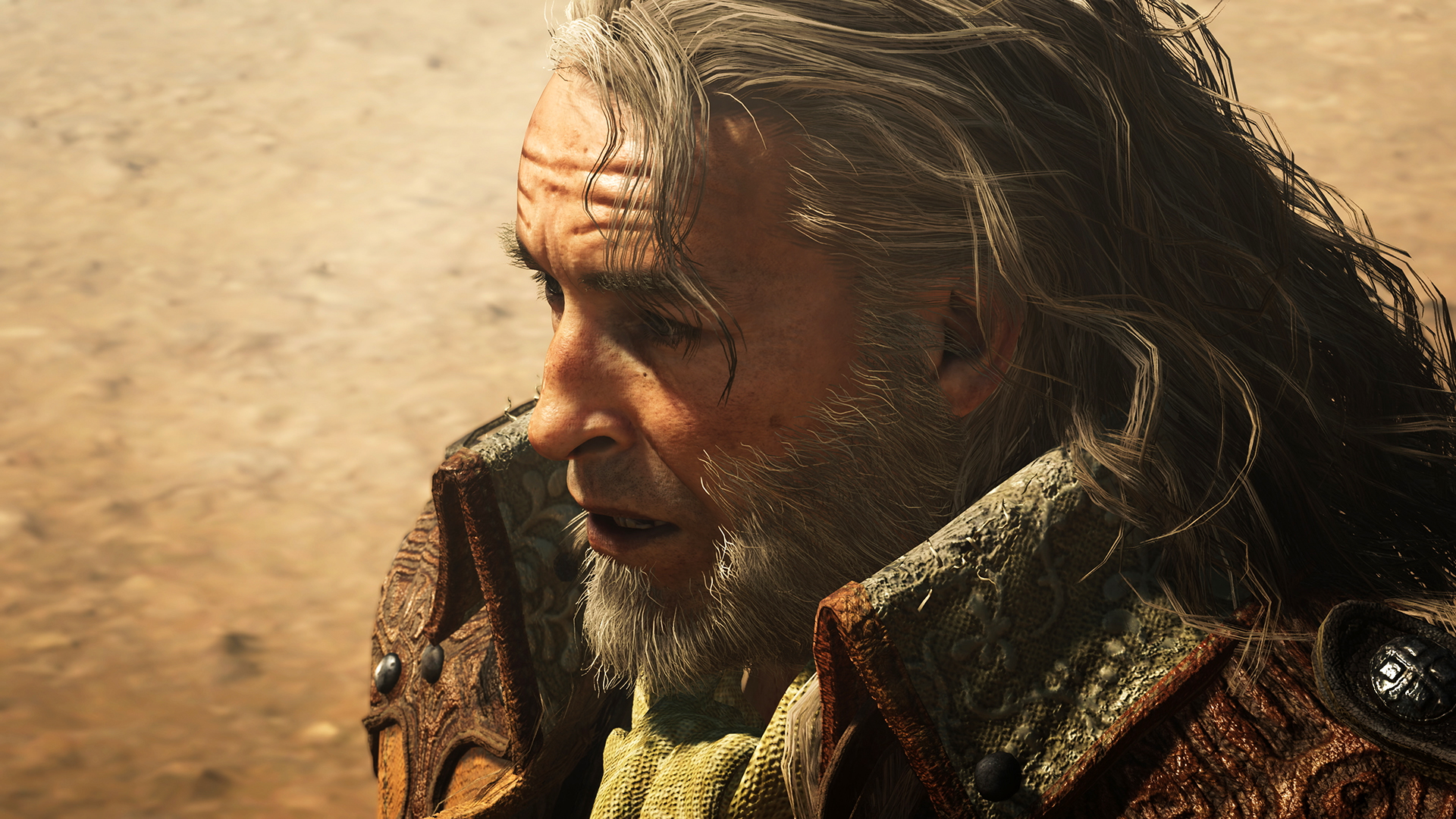
(Image credit: Capcom)
Monster Hunter Wilds is a thrilling adventure, and as a veteran of the series since the early PSP days, I find it a bit on the ‘slightly too easy’ spectrum. Yet, the combat has never been more satisfying, and there’s a significant commitment to crafting an engaging story leading up to the endgame grind. However, as the narratives in these games grow, the series’ key creatives need to have a heart-to-heart about their message concerning nature and its hunting themes.
Early on, the game offers a more polished introduction, followed by a narrative-rich sequence before diving into HR and Tempered hunts post-credits. Monster Hunter Wilds fully embraces its essence: taking down wyverns with massive hammers and slicing through formidable beasts. Although the environments are beautifully rendered, the Monster Hunter games have always been inherently violent. How do you mesh that with a progressive message on environmentalism? It’s a complex question, and it’s tricky to navigate.
Balancing the core experience of hunting monsters to craft impressive weapons with a deeper narrative is challenging. Video games, especially costly ones, need substance beyond mere entertainment, yet also must draw in more players to increase revenues, since people love compelling stories. In truth, it’s all an elaborate play to make gamers enjoy the hunt-loot-craft loop that defines Monster Hunter’s essence.
Analyzing first-month data indicates that Capcom has achieved considerable success in one way or another. Did the main story’s cutscene-heavy approach finally captivate new audiences? Maybe not, considering how Wilds’ narrative can appear disjointed upon reflection.
Before Monster Hunter World, plot was minimal, with quests offering scant descriptions and vague storylines justifying monster eradication. You could delve deeper to comprehend the hunters’ role and world lore, but it was generally assumed they were defenders against oversized threats. Then, Monster Hunter World stepped in with a more serious tale, complete with cutscenes and plot twists, marking the onset of some narrative issues.
The introduction of the New World, disrupted by Elder Dragons and entangled in unusual events, left players pondering their ‘natural’ claims. The relationship among humans, Wyverians, Troverians, and Lynians was always portrayed as sustainable, somewhat justifying the expedition’s non-destructive nature. Yet, World needed greater narrative stakes, transforming nature’s cycles into crises requiring intervention, inadvertently transforming hunters into superhero-like figures.
By integrating a more significant narrative in Monster Hunter Wilds, the series might have written itself into a narrative bind. Post-Rise, Wilds delves deeper into the ‘saving nature from nature’ theme with more cutscenes and explorative moments. Dramatic plot twists lay blame on an ancient Wyverian civilization whose energy source caused chaos, offering justification for the beastly slaughters across the Forbidden Lands. “The habitats are off; we need to correct past wrongdoings,” is the mantra.
Even after rolling credits, the narrative continues. Restored environments and returning species set the stage for hunters to resume their endeavors. Fabius, a notable figure from the Hunter’s Guild, declares hunters will always restore balance. But how do you determine what requires fixing? This murky decision-making wouldn’t pose a problem if Monster Hunter’s fictional humanity mirrored ours, known for lacking in environmental preservation.
Then enters Gore Magala, wreaking havoc with its virus, adding pressure on hunters. Meanwhile, the story flips between Nata’s melancholy over necessary slayings and Fabius’s perception of ecosystem changes as correctable issues. Why not revert to the old reasoning of safeguarding roads or livestock when the storyline of ‘a civilization erred, actually’ only half-measures its effectiveness?
Considering Monster Hunter’s desire for evolution and greater gravitas, finding a coherent message about nature would be a good step. Currently, Wilds’ narrative muddles its discourse and fails to rise above the game’s mechanics. Explore the series further, and see where your favorite game stands on the best Monster Hunter games list!